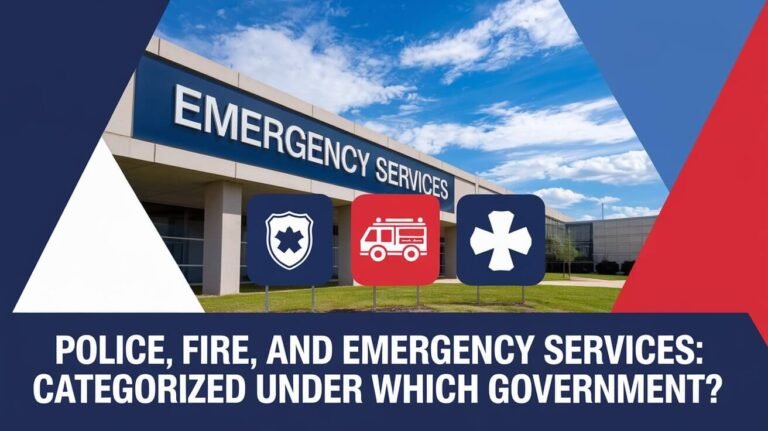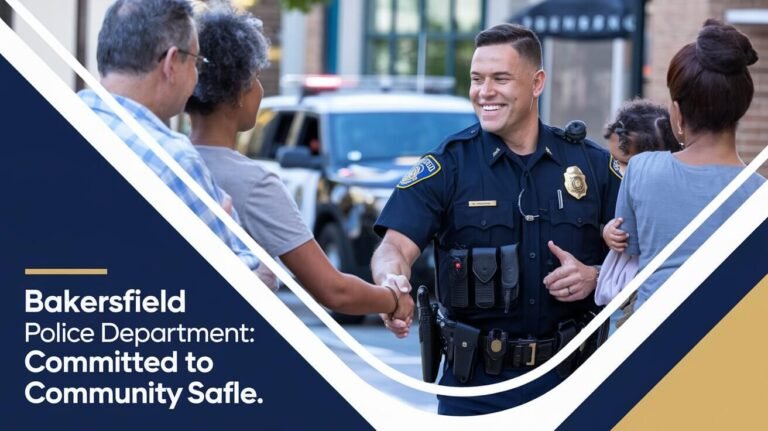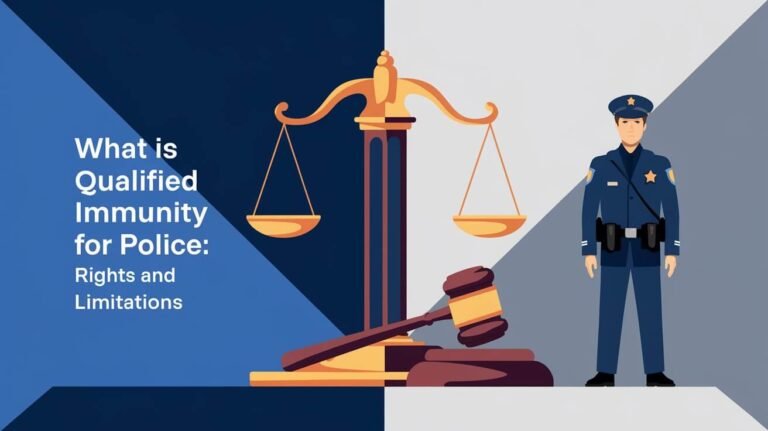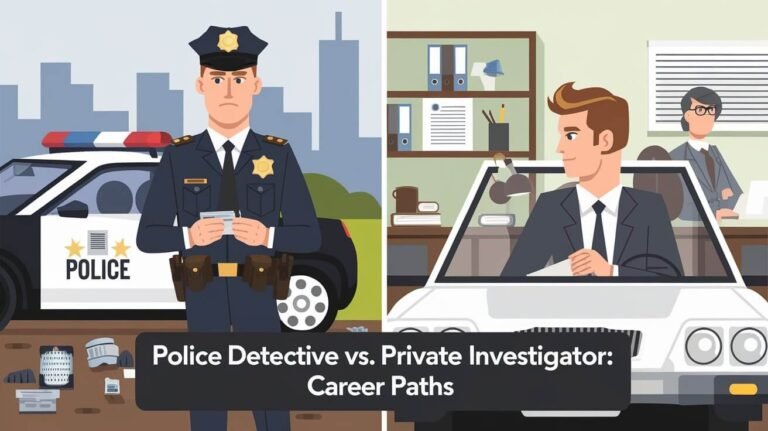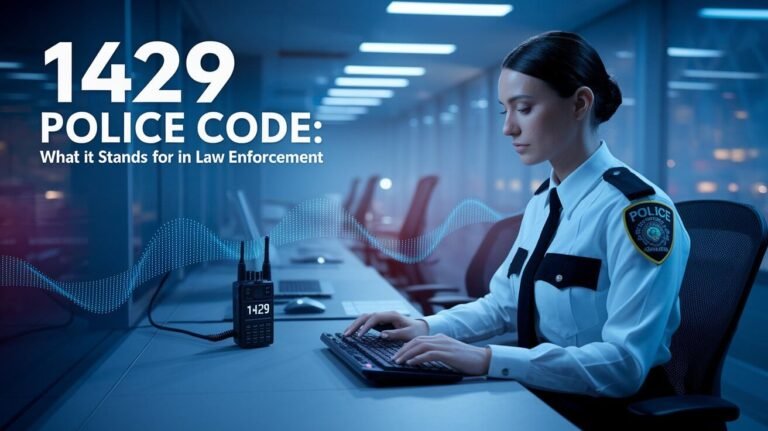What Do You Need To Become A Police Officer? Requirements in 2024
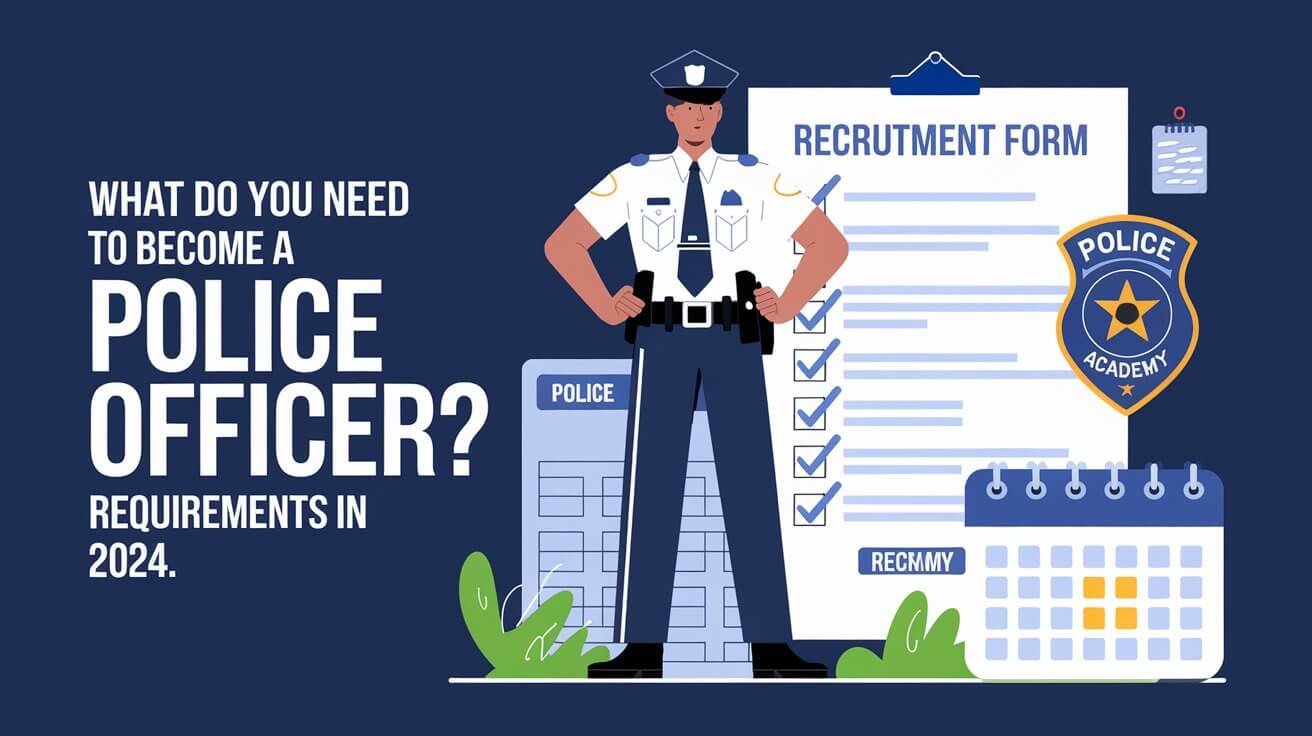
Want to join the police in the United States? It takes specific qualifications and a detailed selection process. You need to be a certain age, a U.S. citizen, have a high school diploma or GED, and show good moral character. Police requirements, law enforcement qualifications, and police officer education are key.
To become a police officer, you must pass background checks and physical tests. You also need to complete tough training at a police academy. Each state and agency has its own rules, but the goal is the same. It’s to make sure only the best are chosen to protect and serve.
Basic Requirements for Police Officer Candidates
To become a police officer, you must meet certain qualifications. These standards ensure candidates have the right skills, education, and fitness. This helps them serve their communities well.
Age and Citizenship Requirements
Candidates must be between 20 and 35 years old. The age limit is 35 by the exam’s final date. They also need to be allowed to work in the U.S. legally.
Educational Prerequisites
Police officers need at least a high school diploma or GED. A college degree is preferred. They should also know English well and have basic computer skills.
Physical Fitness Standards
Police departments in California have their own fitness tests. These check strength, endurance, and agility. Officers must also complete 664 to 730 hours of training.
| Requirement | Details |
|---|---|
| Age | 20 to 35 years old |
| Citizenship | Legally authorized to work in the United States |
| Education | High school diploma, GED, or California High School Proficiency Examination. Associate’s degree or higher is preferred. |
| Physical Fitness | Strength, endurance, and agility tests. Completion of 664 to 730 hours of Regular Basic Course (RBC) training. |
Law Enforcement Career Path Options
Starting a career in law enforcement opens many doors. You can work in local police departments, county sheriff’s offices, or state agencies like the California Highway Patrol. As you gain experience, you can move up to supervisory roles or join specialized units like detectives or SWAT teams.
More education can boost your career. You can choose from associate degrees, bachelor’s programs, or even master’s degrees in criminal justice or forensic science. These degrees show you’re serious about your career and can lead to leadership roles.
Education Requirements
- High school diploma or GED is typically the minimum requirement for becoming a police officer.
- An associate’s, bachelor’s, or graduate degree is often optional but may lead to higher pay and advancement opportunities.
Responsibilities
- Police officers enforce laws, protect life and property, obtain warrants, arrest suspects, secure crime scenes, write reports, and testify in court.
Salary
Police officer salaries vary based on experience, skills, and location. The national median pay is $74,910 annually.
Job Growth
The demand for police officers is steady for the future.
Steps to Becoming a Police Officer
- Obtain a high school diploma or GED.
- Meet other minimum requirements like being a U.S. citizen, having a clean criminal record, and passing an entrance exam.
- Graduate from a police academy.
Advancement
To get higher-ranking positions, a bachelor’s degree is often needed.
Education Options
You can get certificates or degrees in law enforcement from vocational schools, military experience, community colleges, law enforcement schools, and 4-year universities.
Types of Law Enforcement Degrees
- Certificate in Law Enforcement: Covers courses like Criminology, Criminal Justice System, and Corrections.
- Associate Degree in Law Enforcement: Teaches crime types, law enforcement techniques, and legal aspects.
- Bachelor’s Degree in Law Enforcement: Offers a more in-depth education in criminal justice, homeland security, or forensic science.
- Master’s Degree in Law Enforcement: Provides advanced training for leadership and specialized roles within the law enforcement field.
Criminal Background and Personal Conduct Standards
Aspiring police officers go through tough background checks. These checks make sure they meet the high standards of law enforcement. Felony convictions usually mean they can’t join, as agencies look for candidates with no question of integrity.
The investigation looks closely at an applicant’s personal conduct. It checks driving records, drug use history, and how well they handle money.
Automatic Disqualification Criteria
Law enforcement has clear rules for who can’t join. Things like recent drug use, many traffic tickets, or bad money management can stop you. They also look at your online life, social media, and interests to see if you’re right for the job.
Background Investigation Process
The background check is very detailed. Agencies get transcripts, talk to teachers, and check your credit. They look at your criminal history, but not sealed juvenile records. They might also give you a polygraph test to check if you’re telling the truth.
Keeping a clean record and showing good judgment is key for police officers. Knowing the strict police background check and law enforcement qualifications helps candidates prepare for a career in law enforcement.
Physical and Medical Qualifications
To become a police officer, you must meet strict physical and medical standards. These standards check if you’re ready for the tough job of law enforcement. You’ll need to pass vision tests and a health check to show you’re fit for duty.
Vision Requirements
Police candidates must have 20/20 vision, with normal color vision. Some places, like the California Highway Patrol, have their own vision rules. They might even let you wear soft contact lenses. Good vision is key for police, as they need to react fast in many situations.
Health Assessment Guidelines
- Physical exams must be done within 12 months before police academy.
- Candidates should be in good health and not have any issues that could stop them from doing their job.
- They need to be agile, strong, and have good balance and stamina.
- They also need to be able to handle guns and shoot from different angles.
- The hearing standards vary by agency.
- You’ll need a doctor’s note saying you’re okay to start training, if there are any limits.
The physical and medical checks make sure police candidates are up for the job. They ensure you can handle the physical and mental challenges of law enforcement.
Police Academy Training Requirements
To become a police officer in the United States, you must go through police academy training. This training is designed to prepare you for the role of keeping communities safe. You need to finish a POST-certified police academy program to qualify.
The Regular Basic Course (RBC) at police academies lasts about six months. It includes 664-730 hours of classes. You’ll learn about law enforcement, firearms, and legal issues. Classes are held Monday to Friday, from 8:00 a.m. to 5:00 p.m.
To get into the police academy, you must meet certain requirements. You need to pass the POST Reading/Writing Test and the Physical Agility Exam. You must also be at least 21, have a high school diploma, and pass a background check.
| Police Academy Training Requirements | Details |
|---|---|
| Course Duration | Approximately 6 months (full-time) |
| Course Hours | 664-730 hours (minimum) |
| Course Schedule | Monday – Friday, 8:00 a.m. – 5:00 p.m. |
| Entrance Requirements | Minimum age: 21 years old Education: High school diploma or equivalent Pass POST Reading/Writing Test and Physical Agility Exam Clear background check and good moral character |
| Curriculum | Law enforcement techniques Firearms training Legal education |
After finishing the police academy, you get a certificate of completion. This is a must for becoming a law enforcement officer. The training ensures you have the skills and ethics to serve and protect your community.
Application and Selection Process
Becoming a police officer is a tough process. It has many steps to find the right people for the job. These steps check if someone has the skills and character needed to be a good officer.
Written Examination Details
The first step is a written test. This test checks your thinking skills and knowledge. It covers reading, math, and problem-solving.
To pass, you need to score at least 70%. This is the first hurdle to get closer to becoming an officer.
Interview and Assessment Phases
- Oral Board Interview: You’ll meet with a panel of officers in person. They’ll ask about your reasons for wanting to be an officer and what you know about the job.
- Background Investigation: A deep background check is done. It looks at your work history, references, and more.
- Polygraph Test: You’ll take a lie detector test. It checks if you’re telling the truth by how your body reacts.
- Medical and Psychological Evaluation: You’ll have a medical check-up and a mental test. This includes a written test and a chat with a psychologist.
- Physical Ability Test: You’ll show your fitness with tests like push-ups and running.
The whole hiring process can take months. If you make it, you’ll get a job offer. Be ready for a detailed check to make sure you’re up for the job.
Driver’s License and Vehicle Requirements
To become a police officer, you need more than just good grades and physical fitness. You must also know how to drive well. A valid driver’s license is a must. Police agencies might also check your driving history and experience.
Police officers need to feel comfortable driving emergency vehicles. They might have to pass special driving tests. Agencies have rules about how many accidents or traffic tickets an officer can have.
Police officers also need to have the right vehicle documents. This includes a current registration and proof of insurance. Not having these can lead to fines or legal problems. If you drive a rental car or a company vehicle, you might need extra papers.
| Requirement | Details |
|---|---|
| Driver’s License | Valid driver’s license is mandatory Agencies may have restrictions on traffic violations and at-fault accidents Officers must be comfortable operating emergency vehicles May need to pass specialized driving tests during training or qualification |
| Vehicle Documentation | Current vehicle registration Proof of insurance Rental car agreement or employer’s permission letter for company vehicles Documentation for special vehicle modifications (e.g., tinted windows) |
Police officers must keep their driver’s license and vehicle documents in order. This is not just to avoid fines and legal trouble. It’s also to ensure they can do their job safely and well. Paying attention to these details shows they are committed to being professional and upholding the law.
Psychological Evaluation Process
Becoming a police officer is more than just physical and educational requirements. The psychological evaluation is key to check if a candidate is mentally fit for the job. It looks at how well they handle stress, make decisions, and stay emotionally stable. This ensures they can deal with the mental challenges of policing and keep their mental health good throughout their career.
Mental Health Assessment Criteria
The evaluation includes written tests and interviews by a licensed psychologist. It aims to find out if there are any big mental issues or personality disorders. These could affect an officer’s ability to serve well and safely.
- The evaluation checks for traits like emotional strength, teamwork, self-confidence, attention to detail, and reliability.
- It also looks at personal bias, stress handling, and courage to see if the candidate is right for law enforcement.
- It’s important that the candidate answers honestly. Trying to cheat or give false answers can worry the psychologists.
The hiring committee looks at the evaluation results along with other application materials to decide. They use a low-risk, medium-risk, or high-risk profile to judge candidates. The goal is to find people who can do the job well without risking public safety or the agency’s reputation.
| Key Factors Assessed | Assessment Criteria |
|---|---|
| Emotional Resilience | Ability to handle stress and maintain composure in challenging situations |
| Teamwork | Capacity to work collaboratively with colleagues and community members |
| Self-Confidence | Belief in one’s abilities to perform law enforcement duties effectively |
| Attention to Detail | Meticulous approach to tasks and adherence to policies and procedures |
| Dependability | Reliability and trustworthiness in carrying out responsibilities |
Salary and Benefits in Law Enforcement
Becoming a police officer offers good pay and a wide range of benefits. The starting salary for a new police officer in the U.S. is about $81,552 a year. As they gain experience, their earnings can go up a lot. After 30 months, they can earn up to $89,854 as a Private First Class.
As they move up in rank, their pay can increase even more. For example, a Sergeant can make up to $157,176 a year. Officers with more experience, like Lateral/Certified Police Officers, can earn between $81,552 and $139,419 annually.
Law enforcement also comes with great benefits. These include health insurance, retirement plans, paid time off, and help with education. Officers can get up to 104 hours of sick leave a year. Their paid vacation time also grows, reaching 26 days after 15 years of service. This makes law enforcement a great career for those looking into police requirements and law enforcement qualifications.
Common Concerns
What are the basic requirements to become a police officer?
To become a police officer in the U.S., you must be at least 21 years old. You also need a high school diploma or GED. Being a U.S. citizen or permanent resident with a citizenship application is required. Lastly, you must meet physical fitness standards.
What is the career path for law enforcement officers?
Law enforcement careers span local police, county sheriff’s offices, and state agencies like the California Highway Patrol. Officers can move up to supervisory roles. They can also specialize in detective work, K-9 units, or SWAT teams.
What are the criminal background and personal conduct standards for police officers?
Police officers undergo strict criminal background checks. Felony convictions usually bar candidates. The investigation looks into personal conduct, including driving records and drug use history. Agencies have their own rules for disqualification.
What are the physical and medical qualifications for police officers?
Physical requirements include 20/20 vision and normal color vision. Officers must be in good health. Medical checks ensure they are fit for duty.
What does police academy training entail?
Police academy training is essential for all officers. In California, it covers 664-730 hours. Topics include law enforcement techniques, firearms training, and legal education.
What is the application and selection process for becoming a police officer?
The process starts with an application. Candidates must pass written exams and oral interviews. Some agencies require a Personal Qualifications Essay (PQE), polygraph tests, medical exams, and psychological evaluations.
What are the driver’s license and vehicle requirements for police officers?
Police officers need a valid driver’s license. Some agencies require a clean driving record. Officers must be comfortable driving emergency vehicles and may need to pass driving tests.
How does the psychological evaluation process work for police officer candidates?
The psychological evaluation assesses mental fitness for law enforcement. It includes written tests and interviews with a psychologist. It checks stress tolerance, decision-making, and emotional stability.
What are the salary and benefits for police officers?
Police officer salaries vary by location and experience. California offers the highest median wage at $107,440 annually. Benefits include health insurance, retirement plans, and paid time off. Advancing in career can increase earnings.

